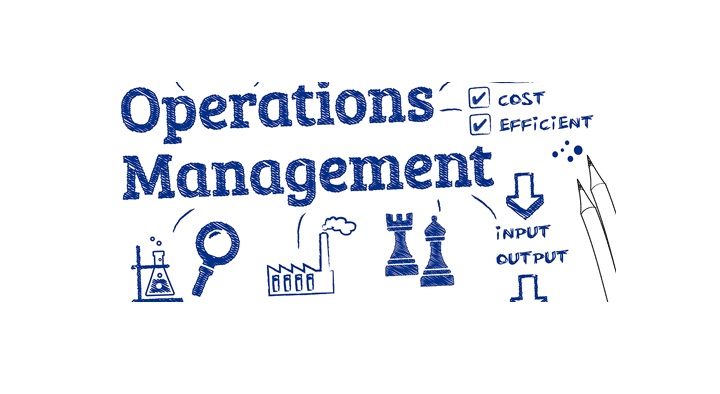
AI-Powered Operations: Efficiency Redefined
In today’s fast-paced business environment, organizations are constantly seeking innovative solutions to improve efficiency and streamline operations. AI in operations management is emerging as a key driver of transformation, redefining how businesses operate. By leveraging artificial intelligence, companies can automate processes, enhance decision-making, and optimize resource allocation. This article explores how AI-powered operations are reshaping efficiency and driving success across various industries.
Understanding AI in Operations Management
AI in operations management refers to the integration of artificial intelligence technologies into business processes to enhance efficiency and effectiveness. This includes the use of machine learning, predictive analytics, natural language processing, and robotics to automate tasks, analyze data, and improve overall operational performance. By harnessing AI, organizations can make informed decisions, reduce costs, and enhance productivity.
1. Automating Routine Tasks
One of the most significant advantages of AI-powered operations is the ability to automate routine tasks. Many organizations still rely on manual processes that are time-consuming and prone to errors. By implementing AI solutions, businesses can automate repetitive tasks such as data entry, scheduling, and customer service inquiries.
Example:
Chatbots powered by AI can handle customer support requests, provide instant responses, and address common queries. This automation not only improves customer satisfaction but also allows human agents to focus on more complex issues that require personal attention.
2. Enhancing Decision-Making
AI technologies can analyze vast amounts of data quickly and accurately, providing valuable insights that support better decision-making. With AI-driven analytics, organizations can identify trends, forecast outcomes, and make data-backed decisions in real-time.
Example:
In supply chain management, AI algorithms can analyze historical data and predict demand patterns, allowing companies to adjust inventory levels accordingly. This proactive approach helps prevent stockouts and reduces excess inventory, optimizing overall resource management.
3. Improving Operational Efficiency
AI-powered operations can significantly enhance efficiency by streamlining workflows and optimizing processes. By identifying bottlenecks and inefficiencies, AI can suggest improvements that lead to smoother operations.
Example:
Manufacturing companies can use AI to monitor production lines in real-time, detecting anomalies and suggesting adjustments to improve output. This leads to reduced downtime and increased productivity, ultimately enhancing overall operational performance.
4. Optimizing Resource Allocation
Effective resource allocation is crucial for maximizing productivity. AI can analyze workloads, employee performance, and project requirements to ensure that resources are allocated efficiently. This optimization helps organizations minimize waste and improve output.
Example:
Project management tools powered by AI can assess team performance and automatically assign tasks based on individual strengths and availability. This ensures that projects are completed more effectively and on time.
5. Driving Predictive Maintenance
Predictive maintenance is one of the most impactful applications of AI in operations management. By analyzing data from machinery and equipment, AI can predict when maintenance is required, reducing unplanned downtime and extending asset life.
Example:
In manufacturing, AI can continuously monitor equipment health, identifying potential issues before they lead to failures. This proactive maintenance approach not only saves costs but also enhances safety in the workplace.
6. Enhancing Customer Experiences
AI in operations management extends to improving customer interactions and experiences. By analyzing customer data, organizations can personalize their offerings and tailor communications to meet individual preferences.
Example:
E-commerce platforms often use AI algorithms to recommend products based on customers’ browsing history and purchase patterns. This personalization enhances the shopping experience and increases customer loyalty.
7. Streamlining Supply Chain Management
AI plays a crucial role in optimizing supply chain operations by providing real-time insights into inventory levels, supplier performance, and logistics. This enables organizations to make informed decisions regarding procurement and logistics.
Example:
AI-driven analytics can predict demand fluctuations, allowing companies to adjust their supply chain strategies accordingly. This agility helps organizations respond effectively to changing market conditions.
8. Supporting Continuous Improvement
AI-powered operations foster a culture of continuous improvement by providing organizations with the tools to analyze performance data and implement changes. This iterative approach ensures that operations remain efficient over time.
Example:
Regularly reviewing AI-driven workflows can help organizations identify areas for enhancement and refine processes, ensuring ongoing optimization and increased productivity.
9. Enhancing Risk Management
AI can significantly improve risk management by analyzing historical data to identify potential risks and vulnerabilities. This proactive approach enables organizations to mitigate risks before they escalate into significant issues.
Example:
AI algorithms can analyze market trends and economic indicators, helping organizations anticipate potential disruptions in their operations and develop contingency plans accordingly.
10. Preparing for the Future
As technology continues to evolve, businesses must adapt to remain competitive. Investing in AI for operations management positions organizations to take advantage of future advancements. AI is not just a trend; it is becoming a fundamental aspect of how businesses operate.
Example:
By adopting AI tools early, companies can better prepare for future challenges and opportunities, ensuring they remain agile and competitive in a constantly changing landscape.
Conclusion
AI-powered operations are redefining efficiency in businesses across various industries. By integrating AI in operations management, organizations can automate routine tasks, enhance decision-making, and optimize resource allocation. The benefits of AI extend beyond immediate operational improvements, fostering a culture of continuous innovation and adaptability. As companies continue to embrace AI technologies, they position themselves for long-term success and a competitive edge in the marketplace.





